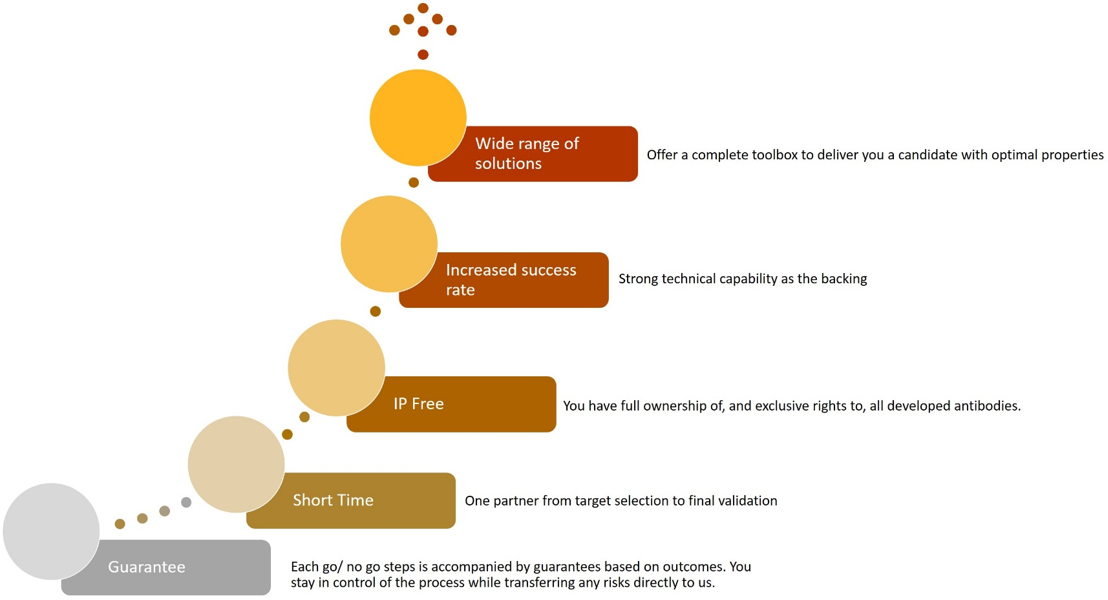Antibodies have become essential tools for research use due to their high specificity, high binding affinity, long half-lives, and low toxicity. High-quality hybridoma development services at Creative Biolabs have covered you for your ELISA, western blot (WB), immunohistochemistry (IHC), immunofluorescence (IF), flow cytometry (FACS), or other assay needs. A personalized and flexible solution will be designed and adapted to your needs.
For efficient interaction between antigen and antibody, the epitope must be readily accessible for binding. If the target molecule is denatured through pH changes, fixation, reduction, or during preparation, the epitope may be changed and this may affect its capability to interact with an antibody. Sometimes, antibodies are ineffective in WB but are appropriate for IHC application. In IHC assay, a complex antigenic site might be maintained in the tissue, however in the WB, the proteins are subjected to denaturing conditions which changes the protein conformation sufficiently to destroy the antigenic site, and hence eliminates antibody binding. Thus, the antibodies produced against native proteins are more likely to react best with native proteins (e.g. IP or FACS) and antibodies produced against denatured proteins react with proteins subjected to denaturing conditions (e.g. WB).
Following fusion and HAT selection, hybridomas will be screened by different methods for the presence of IgM/IgG antibodies directed against the antigen. We determine the antibody subclass and titer firstly. Cells from positive wells are expanded and cryostored to allow sufficient time for validation of the primary supernatant. Primary supernatants from positive hybridoma cells will be further validated in desired applications such as WB, IP, IF, FACS, and IHC.
 Fig.1 Features of our high-quality hybridoma services.
Fig.1 Features of our high-quality hybridoma services.
Antibodies for research applications are most commonly used to identify and localize intracellular and extracellular proteins. For instance, antibodies are used in FC to differentiate cell types by the proteins they express. They are also used in WB to detect proteins separated by electrophoresis, in IP to separate proteins and any bound molecules (co-IP) in a cell lysate, and IHC or IF to study protein expression in tissue sections or to localize proteins within cells. Proteins can also be detected and quantified with antibodies using ELISA. It is important to determine the application and hybridoma screening method since not all antibodies will work with every application. Creative Biolabs provides the following function guaranteed hybridoma development services.
If you are interested in our fit-for-purpose hybridoma and antibody development, please feel free to contact us for more information.
All listed services and products are For Research Use Only. Do Not use in any diagnostic or therapeutic applications.